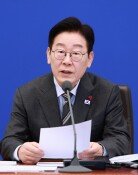Unfair Difficulties in Tracing Foreign Capital
Unfair Difficulties in Tracing Foreign Capital
Posted March. 17, 2005 22:50,
The Financial Authorities Hands Are Tied
With the opening of the financial market to foreign traders, there is an urgent need for obtaining financial information on foreign countries to investigate whether foreign capital has been practicing unfair trade.
However, even though the percentage of foreigners in the Korean stock market is over 40 percent, in the matter of financial information exchange among countries Korea is a loner. This is because the channels for financial information interchange are blocked.
Even though Korea is a member of the International Organization of Securities Commissions (IOSCO), a meeting for financial supervisory authorities, Korea was not able to join the multilateral agreements on financial information exchange, which was signed by 21 countries and 26 organs. Although separate agreements were concluded with seven countries (including Great Britain, France, and Japan) and 10 organs after 1999, the exchange of financial transaction particulars for investigation of unfair trade remains impossible.
The obstacles to financial information exchange lie chiefly with Korea. They take the form of laws on real-name transaction and protection of confidentiality (Real-Name Usage in Financial Transactions Law), the Foreign Exchange Transaction Law, and laws on credit information usage and protection (Credit Information Law).
The Real-Name Usage in Financial Transactions Law allows finance companies to furnish financial information to individuals and corporations who present a just demand. However, it prohibits the dispersal of such information in the case of foreign organs.
The Foreign Exchange Transaction Law and the Credit Information Law also entirely prohibit such distribution of information, with exceptions as specified by regulations regarding real-name usage.
If the financial supervisory authorities of Korea do not provide financial information, the foreign authorities will refuse to provide financial information to Korea. This is due to the reciprocity rule that is applied to information interchange.
Protection of Financial Information or Stabilization of the Financial Market?
The Real-Name Usage in Financial Transactions Law is under the jurisdiction of the Ministry of Finance and Economy (MFE). The MFE is well aware of the current situation, but believes that to stabilize the financial market they cannot expand exceptions in the real-name usage law.
An MFE official said, Due to the Real-Name Usage in Financial Transactions Law, it is difficult to investigate foreign capital, but we cannot fundamentally revise the law because of this.
It is believed that if the number of exceptions is increased it will be difficult to protect private information.
Alternatives, such as amending the laws on capital laundry prevention or the establishment of financial supervisory organizations, aimed at publicizing financial information in a roundabout way are being discussed.
Yoon Young-ro, the director of Financial Supervisory Commissions supervisory policy department 2 said, It is an asymmetric structure due to the fact that, even though the influence of foreigners in the Korean stock market is continuously increasing, we are not able to supervise them. He added, If revising the real-name law is difficult then such laws as those on the establishment of financial supervisory organizations should be altered so that it will be possible to strike financial trade information exchange agreements with foreign countries.
Ki-Jeong Ko koh@donga.com





![“한동훈, 정치생명 걸고 무소속 출마해 평가받는 것 고려할만”[정치를 부탁해]](https://dimg.donga.com/c/138/175/90/1/wps/NEWS/IMAGE/2026/01/19/133186982.1.jpg)

